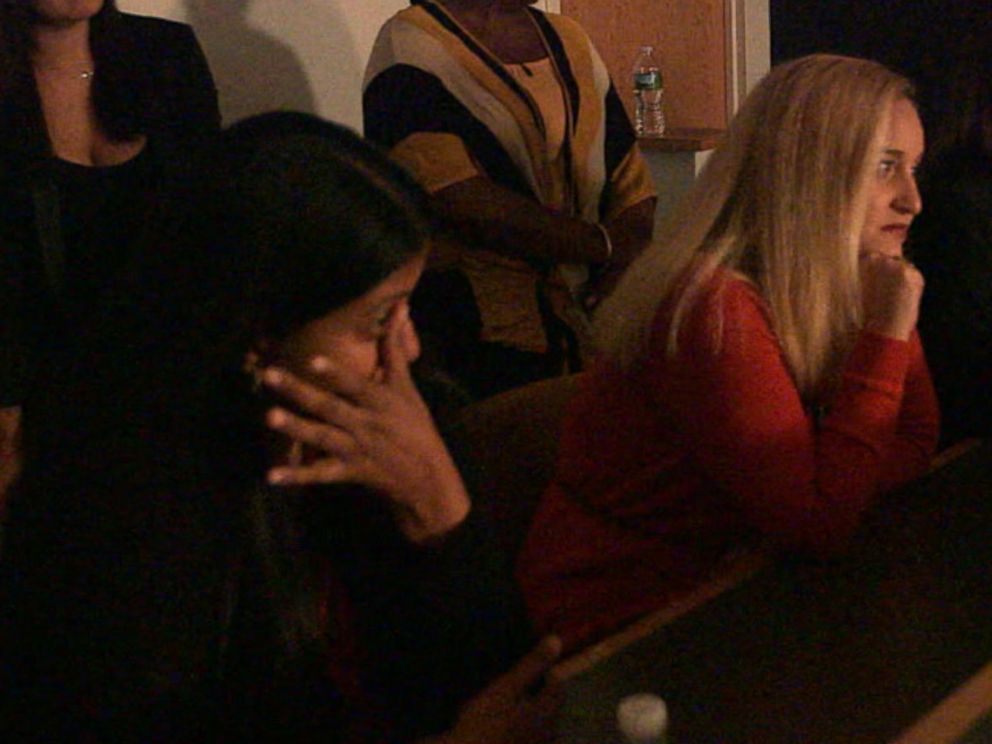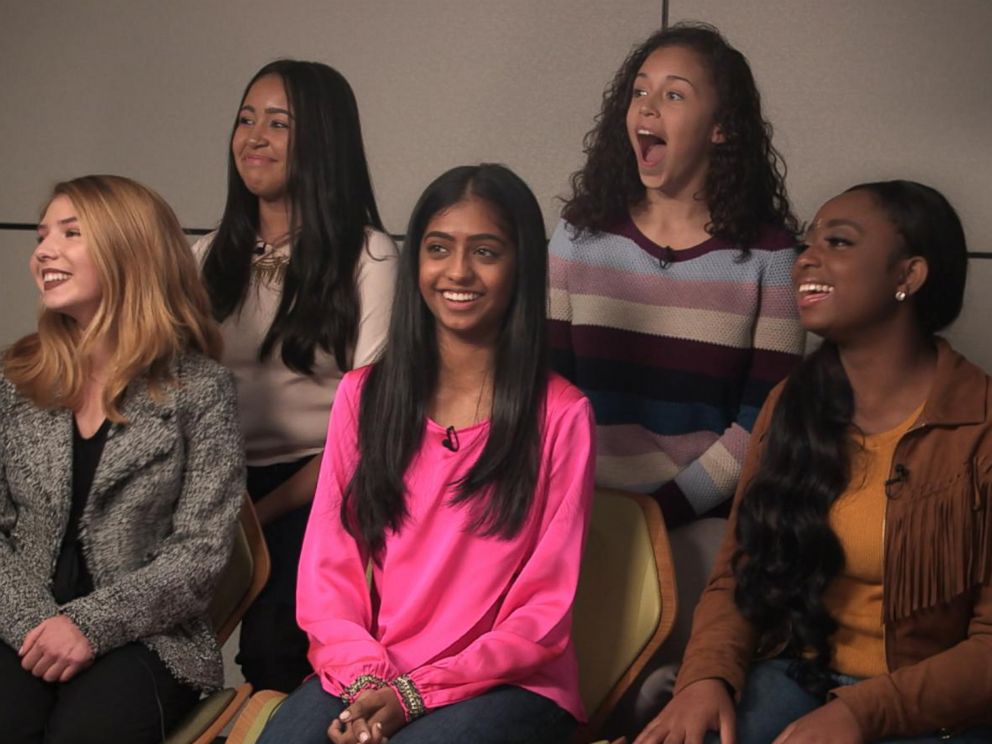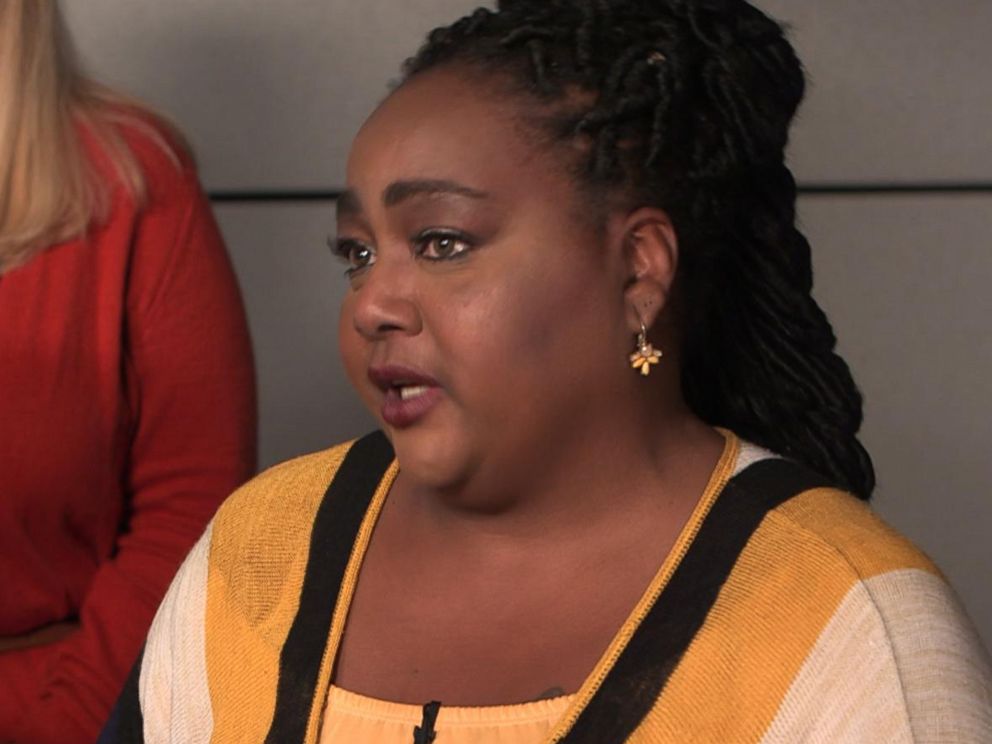
For some parents, understanding the pressure of social media can be difficult, and as a result, some teens may feel they cannot talk to their parents about cyberbullying, body image problems and other struggles they face in their day-to-day life.
“One of the hallmarks of adolescence is to make mistakes, part of adolescence is figuring out who you are,” Dr. Logan Levkoff, an expert in parent-child communications, told ABC News. “Sometimes you make choices that aren’t so great, but … those choices are an opportunity for growth.”
“The challenge with social media is that it doesn’t give a young person freedom to make mistakes without being defined by them,” she added, saying she believes that social media plays a “huge role” in causing anxiety for teens.
‘GMA’ experiment finds moms surprised by the pressures their daughters face on social media
In an experiment set up by “Good Morning America,” a group of 15- to 17-year-old girls candidly discussed with ABC News’ Deborah Roberts the stresses they face, especially as a result of how pervasive social media is in their lives.
Unbeknownst to them, their mothers sat behind a glass mirror to listen and learn about their daughters’ struggles.
Approximately 79 percent of parents said that their teens use social media, according to a 2017 report from the American Psychological Association. Additionally, 69 percent of the parents of teen girls reported that they worried about the influence of social media on their child’s health, compared to only 39 percent of parents of teen boys.
A majority of the teens in the “GMA” experiment said they felt stress was a big problem in their lives.
Most of the girls, who wished to only be identified by their first names, also said that social media was also a big part of their lives. The group answered a collective “no” when asked if they ever went a day without being worried about their online profile.
“Every girl thinks she has to be better than another girl and it shouldn’t be like that,” said 15-year-old Cayla Kumar.
Another, Booch O’Connell, 16, added, “There’s just constant pressure, I guess, with everyone and social media.”
Anyaa Adams, 17, said she felt like social media causes her to question herself, saying, “Sometimes they’ll say, like, ‘Your stomach area is fat,’ I’m like, ‘Wait, is it?'”
 ABC News
ABC NewsCayla also said she questioned her own body as a result of social media, saying, “a lot of my friends think I’m anorexic.”
“I have a high metabolism, they just don’t understand,” she added. “Sometimes it can hurt, but you’ve got to grow tough skin.”
Alexus Analyz, 16, added that she feels she is criticized for almost everything on social media.
“I choose not to pay attention to it,” she said. “They can talk about things that you post, things that you wear, things that you say.”
Booch said that during her first year of high school, the criticism directed toward her that started online affected her even offline.
“Cyberbullying translates to real life,” she said. “And you have people taunting you while you’re right there.”
Anyaa Adams, 17, added that it can be hard to simply brush off the criticism that you face on social media.
“It’s like, ‘Wait, I think I look great,’ so then it’s, ‘Who cares what they say?’ but then it’s like … ‘Somebody just said that to me … are you kidding me?'” she said.
Destiny Mateo, 15, added, “I don’t hate my body, but I do feel like there’s room for improvement all the time.”
 ABC News
ABC NewsThe teen girls also said that they also feel pressure from social media when it comes to relationships.
Some of the girls said they feel pressure to hook up or to have a boyfriend because of social media, to the shock of their mothers in the next room.
“I think it’s like girls always make it a competition, and I think it’s a bad thing, that goes around everywhere,” Cayla said.
Cayla went on to say that she felt like she could not talk to her mother about some of her struggles with social media, saying, “When I try to explain situations to her she doesn’t quite understand it from my perspective because things have changed so much.”
The mothers, who eventually entered the room and surprised their daughters, said that they were shocked to hear some of their thoughts.
“What really surprised me in this group is … these girls are gorgeous,” one mother said. “[But] they are full of anxiety.”
Another mom added that “the struggles the kids are going through now” are “so different.”
How parents can talk to their teen about social media and anxiety
“The part that parents miss is they think that social media is stressful just when you use it, but it’s even stressful when you’re not on,” Levkoff said. “Because you’re wondering, what are people thinking of my posts? Are they liking my photos? Am I missing out on something?”
Levkoff said one of the most important things that parents can do if they are concerned that their teen may be struggling with anxiety, is to “trust your gut.”
She added that if your teen is “avoiding social activity,” or taking a step back from activities they once enjoyed, “that might be a sign that something is going on.”
If you do suspect your teen is struggling with anxiety, Levkoff recommends asking questions “that are meant to illicit a more thoughtful answer” than simply “yes” or “no.”
“If parents suspect that something is going on, I think asking questions about friendships, I think asking to see phones and social media usage of your children and their friends is absolutely within a parents range of authority,” she added.
Levkoff said that she also believes parents should restrict screen time if they are concerned about their child’s social media use. Parents should also set clear rules when it comes to technology, Levkoff added, saying she gave her son a “contract with 17 points of all our expectations of technology.”
“Young people, we think that they are really savvy and intuitive, and they would know what not to do with technology, but the reality is that they don’t know what to do, so sometimes we have to be explicit in our expectations and rules,” she added.
“As parents we want kids to love us … we want them to be our friends, and often times as they get older we have a really hard time putting restrictions on things,” she said.
Finally, Levkoff recommends for parents to emphasize to young people the gap between social media and reality, especially for teens who may feel pressured by what they see online.
“One thing we have to make sure our kids know is that people curate their lives online,” she added. “None of it represents the holistic reality of our lives.”
“So the decisions we make about our bodies or relationships or sex, if we make them about what we’re seeing, well we’re not really seeing the whole picture,” she added.
Source:-abcnews.
